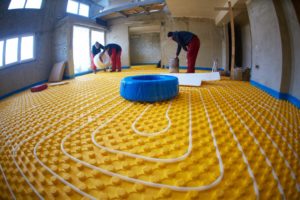- Positive feedback focused on effort cultivates a growth mindset, promoting self-confidence in children.
- Building resilience through managed exposure to failure fosters children’s self-confidence.
- Encouraging independence and responsibility enhances children’s self-belief and ability to handle challenges.
- Modeling self-confidence and positive self-talk helps children value these traits and develop a positive self-image.
- Caring for physical health, including oral health, helps children foster self-confidence.
Self-confidence is an essential trait to develop in children, as it can affect many aspects of their lives, from academic performance and social interactions to their overall happiness and well-being.
As a result, parents and caregivers play an essential role in fostering self-confidence in children. While knowing where to start can be challenging, several practical tips and strategies can help cultivate self-confidence in kids of all ages.
This blog post explores some of the most effective methods for promoting self-confidence in children, from positive feedback and building resilience to providing opportunities for growth and learning.

Give Positive Feedback
One of the best ways to boost a child’s self-confidence is to provide plenty of positive feedback and praise. This can be as simple as letting your child know when they’ve done something well or achieved a personal goal.
Specific and Focused Feedback
However, it’s important to ensure that this feedback is specific and focused on the child’s efforts and actions rather than their inherent traits or abilities. For example, instead of saying, “You’re so smart,” try saying, “You worked really hard on that math problem, and it paid off.” This will help children develop a growth mindset and see the value in putting in effort and taking risks rather than feeling pressured to live up to a certain expectation.
Build Resilience
Another key factor in developing self-confidence is building resilience. This means helping children learn to bounce back from failure, setbacks, and challenges. While shielding children from failure and disappointment can be tempting, this approach can be harmful in the long run.
Try New Things
Instead, encourage children to take risks and try new things while providing support and guidance when things don’t go as planned. Help them see failure as an opportunity to learn and grow rather than a reflection of their worth or abilities.
Furthermore, provides positive reinforcement for even small successes. This could involve something as simple as praising children for their effort and hard work when they complete a task.
Encourage Independence and Responsibility
Giving children opportunities to take on responsibilities and make their own decisions can be a great way to boost self-confidence. Whether it’s letting children plan and cook a meal or giving them a chance to choose their own clothing, these experiences can show children they can handle new challenges and responsibilities.
Ownership of Failure
It’s also essential to allow children to take ownership of their successes and failures rather than always swooping to solve problems or taking credit for accomplishments.
Care for Physical Health
Parents play an important role in helping their children build self-confidence. An important part of this is to ensure that the basics of physical health are taken care of. This includes ensuring that your child has regular checkups with their pediatrician and gets proper nutrition and enough exercise.
Care for Oral Health
One area of health that is often overlooked is oral health. Ensuring your child has regular visits to the dentist is a great way to develop healthy habits and keep their teeth in good shape. If the child has a missing or damaged tooth, you should bring the child to a dentist offering reliable tooth replacement services. Replacing the missing or damaged tooth will give the child the confidence to smile when meeting others.
Health Issues
It’s also important to be aware of potential health issues or concerns and address them early. Parents can also help their children develop a healthy self-image by encouraging them to be active and participate in sports and physical activities they enjoy.

Model Self-Confidence and Positive Self-Talk
Finally, how parents and caregivers talk about themselves and their abilities can significantly impact children’s self-confidence. If children hear adults talking negatively about themselves or downplaying their achievements, it can send the message that self-confidence is not important. On the other hand, if adults model positive self-talk and self-confidence, it can help children see the value in these traits. Encourage children to talk positively about themselves and their abilities, and model this behavior yourself.
Fostering self-confidence in children is not always easy, but it is essential. By following the tips enumerated in the article, parents and caregivers can help instill this vital trait in children of all ages. If you’re looking for practical tips for promoting self-confidence in your child, start by trying some of the strategies outlined in this blog post. With time, patience, and a little effort, you can help your child develop the self-confidence they need to thrive in all areas of their lives.



















